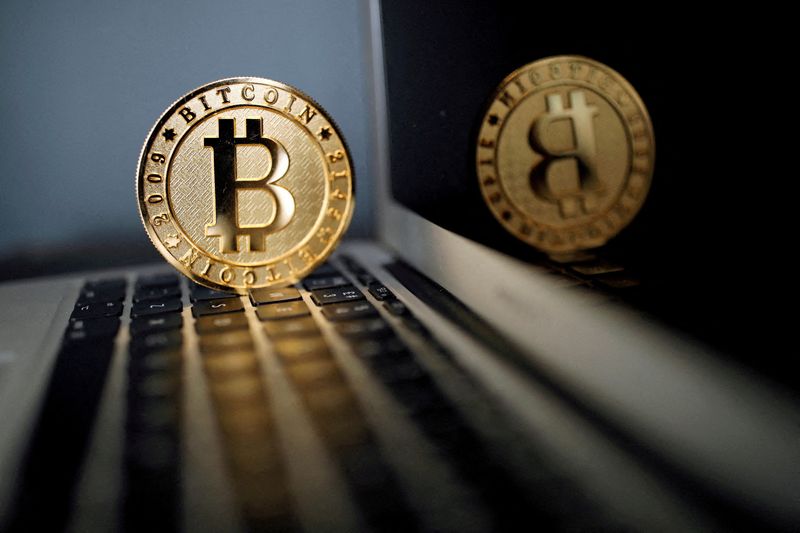By Medha Singh
(Reuters) - What's happened to the army of retail traders who used to drive bitcoin's biggest rallies?
U.S. crypto exchange Coinbase (NASDAQ:COIN) reported just $56 billion in consumer trading volumes in the first quarter of 2024, when bitcoin leapt to record heights close to $74,000.
While that represents a fledgling recovery in retail interest - almost double the level in the final quarter of last year - it's way below the $133.75 billion quarterly average during the last comparable rally in 2021.
The retail investor was in the driving seat of that wild 2021 ride, as COVID lockdowns, cheap money and personal savings drove up prices of "meme" stocks and spawned bouts of intense FOMO, or fear of missing out. By contrast, the latest rally was a more solemn, institutional affair propelled by the birth of U.S. bitcoin exchange-traded funds.
"It's the million-dollar question in crypto right now - when will retail traders come back?" said Michael Rinko, analyst at Delphi Digital.
In another sign of the retail retreat, Google (NASDAQ:GOOGL) trends data shows search interest in the term "bitcoin" in March was only half of the peak in 2021.
Some small-time investors are still nursing the chills of the more than two-year long crypto winter, when bitcoin stayed limp at levels between $20,000 to $30,000.
Billions of customer funds were also trapped in the implosion of high profile crypto companies, including Three Arrows Capital, Celsius Network and FTX, whose founder Sam Bankman-Fried was sentenced to 25 years in prison for fraud.
"The key force behind the reduced activity stems from lessons learned throughout the harrowing year, which was 2022," said Vetle Lunde, analyst at K33 Research.
"The contagion and collapse of a vast portion of retail-facing lending platforms illustrated that considerable risks were hiding behind the attractive yields."
Some market participants reckon bitcoin, which accounts for more than half of the $2.26 trillion digital assets market capitalization, will be hit by a period of rotation as investors take profits on the coin and decide to buy riskier altcoins such as the no. 2 crypto ether and others.
Indeed, ether lags its larger rival bitcoin and is yet to exceed its 2021 peak.
"Instead of just blindly jumping into crypto in whatever seems to be hot at the time, people are now focused much more on what is a secure and safe asset to invest in," said John Glover, chief investment officer at crypto lending platform Ledn.
It remains to be seen if or when speculative crypto traders will return to the market in force.

Right now, bitcoin's tumble to $62,809, 15% below its mid-March record high is serving as a reminder of the sharp volatility and risk that comes with the asset.
"The meme in crypto is - bitcoin needs to hit $100,000 for retail to come back," said Rinko at Delphi Digital. "Who knows if that's the magic number but we do need to get to a number that really ignites FOMO."